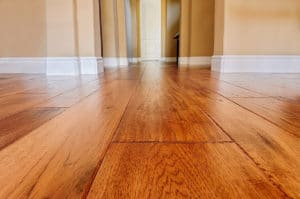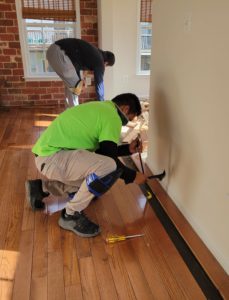10 Questions About Hardwood Flooring

There are numerous reasons why people consider hardwood flooring over other flooring options. These reasons include low maintenance, durability, increased home value, improved indoor air quality, better acoustics, and is suitable for any decoration theme. There’s an array of hardwood floors in the market; therefore, you’ll need to consider various aspects to make a sound decision.
Below are ten questions to ask when buying hardwood flooring:
1. Is Unfinished or Prefinished Hardwood the Right Choice?
With prefinished wood floors, the finishing and sanding are done off-site. This is essential if you want to keep the mess and smell out of the home. When it comes to prefinished wood floors, sanding and finishing are done in the room. The main difference between an unfinished and a prefinished is the bevel. A prefinished wood floor requires a micro bevel on the sides of the boards to account for slight differences in your slab. Machines do the finishing on a prefinished wood floor. On the other hand, finishing on a site-finished floor is done by hand. Some techniques and finishes are only possible when done off-site and vice-versa.
2. Should I Choose a Solid Hardwood Floor or an Engineered Hardwood Floor?
Two factors help you determine the best option for your home: location and the space where you intend to install the new floor. The main difference between a solid wood floor and an engineered wood floor comes from the base’s construction. Engineered woods have a thinner layer that is glued to a plywood base. On the other hand, solid wood floors should be installed over a subfloor. According to research, engineered wood floors are ideal for damper climates and can be installed in the basement. Solid wood floors are the perfect option when it comes to drier regions. Therefore, if you’re looking forward to installing wood flooring in a space susceptible to water, an engineered wood floor may be the safer option unless you are open to luxury vinyl plank.
3. How can I Minimize Wear and Tear?
No hardwood floor’s immune to wear and tear, especially when it comes to scratches. Choosing a harder wood species will play a vital role in reducing the rate of wear and tear. But, there are other aspects that you should consider, such as textures, finish, and grade. Some wood floor finishes are designed for high-traffic areas, including airports and museums. In addition, the color of the wood floor can impact the rate of wear and tear. For instance, a neutral floor color may be less susceptible to noticeable scratches, unlike a dark floor. Placing area rugs and pads on high-traffic areas and door entries can also help protect the surface of your hardwood flooring.
4. What Wood Species Should I Choose?
Your wood species depends on your personal preferences, style, and budget. You should evaluate different species based on their toughness and look because they have special characteristics. Harder and denser woods handle foot traffic better, especially when compared to other species. Different hardwoods have different colors. Therefore, the color you want to match with your decor will affect your choices. Most people opt for white oak because it handles traffic well. In addition, there are several options for finishes, making it easy to customize to your home and style.
5. What Finishes Should I Choose?
Finishes won’t affect the durability of the wood floor. Also, different finishes will have a different look. For instance, a gloss finish will result in a bold shine, while satin or matte finishes will offer the least amount of shine. Semi-gloss finishes will reflect light because they’re shiny. Some of the aspects that you should consider when selecting a wood floor finish are sustainability, appearance, drying time, safety, tools required, ease of use, exposure to sunlight and humidity, project type, and color.
6. How Do I Clean My New Wood Floors?
Maintaining and cleaning a wood floor is a breeze. Simply vacuum and lightly mop with an approved, wax-free cleaning agent. Avoid using any type of steam, corrosive chemicals, or wet mops as this can damage your hardwood floors if not done properly. Be sure to choose a solution that’s compatible with your finish and call a professional cleaning service that specializes in hardwood floors if they begin to look dull – or once every twelve to eighteen months.
7. When is the Best Time to Install Hardwoods?
Professionals suggest that spring is the ideal time for hardwood flooring installation for reasons including access to ventilation, temperature, and humidity levels.
8. Is Professional Installation Better than DIY Installation?

Installing wood floors might seem simple, but that isn’t the case. Proper hardwood installation requires experienced professionals. The DIY approach isn’t recommended because you’ll be prone to costly mistakes. In addition, experts will use high-tech equipment to save time and increase work efficiency. Hiring experienced and reputable contractors is expensive, but it’s worth it in the long run.
9. Do I Need to Order Additional Material?
As a general rule, homeowners should always order 10% more material. This is wise because the material will be trimmed to perfectly fit your space. If you have spaces around the fireplace, closet, or stairs, order more than 10% extra material.
10. How Much Does Hardwood Flooring Cost?
The cost of wood floors depends on your space’s size and the hardwood type. Our experts will provide you with estimates that’ll help you determine the overall budget.
Choosing the ideal wood flooring for your home can be overwhelming, but it’s worth it. The best flooring option will play a significant role in enhancing your home’s aesthetic value.











